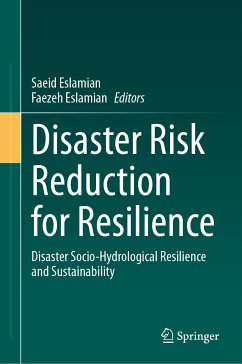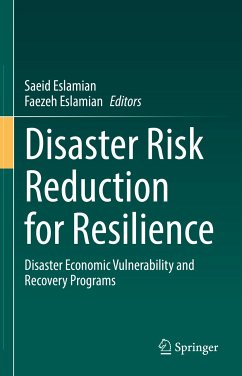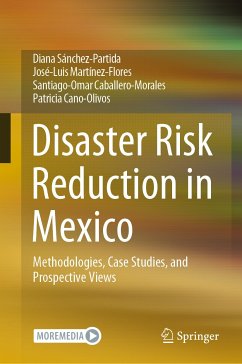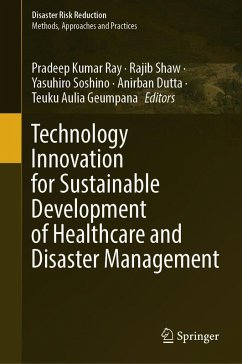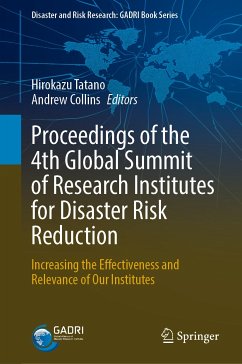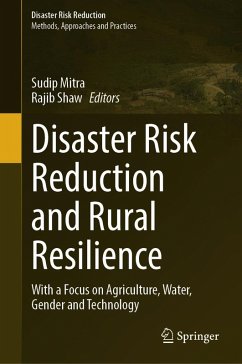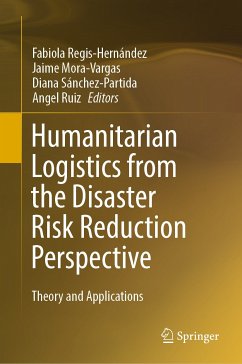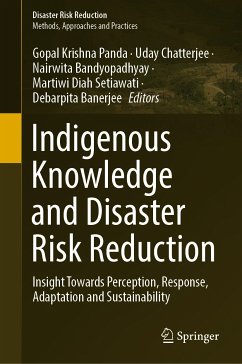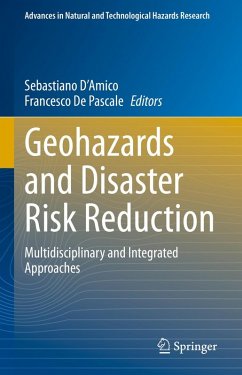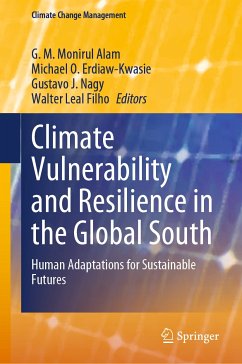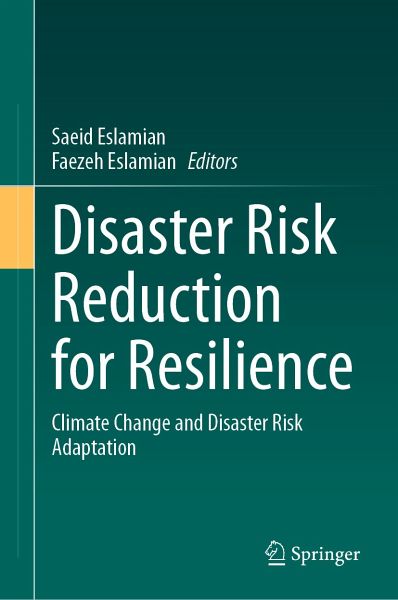
Disaster Risk Reduction for Resilience (eBook, PDF)
Climate Change and Disaster Risk Adaptation
Redaktion: Eslamian, Saeid; Eslamian, Faezeh
Versandkostenfrei!
Sofort per Download lieferbar
128,95 €
inkl. MwSt.
Weitere Ausgaben:

PAYBACK Punkte
64 °P sammeln!
This book is part of a six-volume series on Disaster Risk Reduction and Resilience. The series aims to fill in gaps in theory and practice in the Sendai Framework, and provides additional resources, methodologies, and communication strategies to enhance the plan for action and targets proposed by the Sendai Framework. The series will appeal to a broad range of researchers, academics, students, policy makers, and practitioners in engineering, environmental science and geography, geoscience, emergency management, finance, community adaptation, atmospheric science, and information technology.This...
This book is part of a six-volume series on Disaster Risk Reduction and Resilience. The series aims to fill in gaps in theory and practice in the Sendai Framework, and provides additional resources, methodologies, and communication strategies to enhance the plan for action and targets proposed by the Sendai Framework. The series will appeal to a broad range of researchers, academics, students, policy makers, and practitioners in engineering, environmental science and geography, geoscience, emergency management, finance, community adaptation, atmospheric science, and information technology.
This volume offers indigenous approaches to disaster risk reduction, community sustainability and climate change resilience, as well as agro-ecological innovations for improving resilience to climate change. The focus is on adaptation strategies for sustainable terrestrial and marine ecosystems to reduce the impacts of anthropogenic factors that exacerbate disaster risk, including hydro-meteorological services for climate resilience, food security measures in agriculture and livestock, flood mitigation plans, and increased climate change education and awareness. The book concludes with three case studies in Africa detailing the impacts of strengthened climate change resilience measures, adaptive social protections, and improved water availability through hydro-electric technologies.
This volume offers indigenous approaches to disaster risk reduction, community sustainability and climate change resilience, as well as agro-ecological innovations for improving resilience to climate change. The focus is on adaptation strategies for sustainable terrestrial and marine ecosystems to reduce the impacts of anthropogenic factors that exacerbate disaster risk, including hydro-meteorological services for climate resilience, food security measures in agriculture and livestock, flood mitigation plans, and increased climate change education and awareness. The book concludes with three case studies in Africa detailing the impacts of strengthened climate change resilience measures, adaptive social protections, and improved water availability through hydro-electric technologies.
Dieser Download kann aus rechtlichen Gründen nur mit Rechnungsadresse in A, B, BG, CY, CZ, D, DK, EW, E, FIN, F, GR, HR, H, IRL, I, LT, L, LR, M, NL, PL, P, R, S, SLO, SK ausgeliefert werden.



